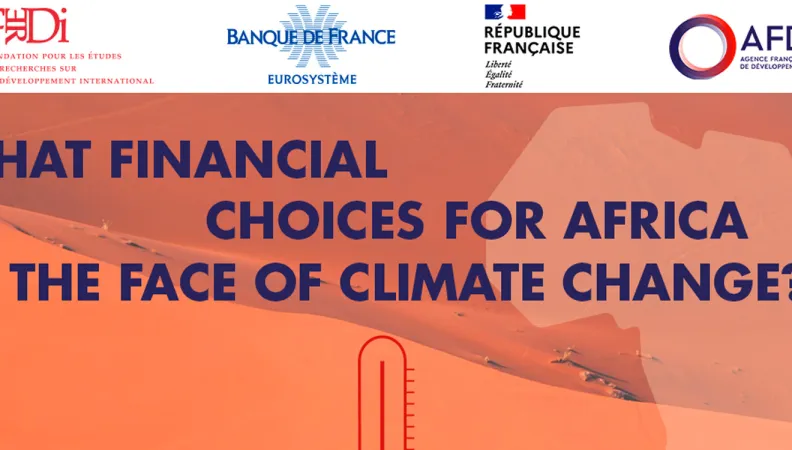Share the page
Banque de France-Ferdi–AFD Conference: What Financial Choices for Africa in the Face of Climate Change?

-
When
-
From Tuesday June 29, 2021 to Thursday July 1, 2021
How can we meet the financial challenges of climate change in Africa? What role can the financial sector play? What are the constraints and opportunities?
Africa is one of the most vulnerable regions to climate change. African countries, which are often low-income countries, are poorly equipped to cope with the consequences of climate change. The risks of crises, conflicts and migration caused by global warming are particularly high.
Domestic public resources may not be sufficient to cover Africa’s transition financing needs. The financial sector can play a key role in ensuring the effective mobilization of financial resources and improving resilience. In particular, it can facilitate the allocation of funds to sustainable investments. The financial implications of climate change in Africa thus reflect different constraints and opportunities from those in developed countries.
The conference is split in three sessions: one session per day lasting from 2 to 2.5 hours each. An inaugural speech will introduced the conference the first day. The conference will close with a round table aiming at broadening the subject to other environmental aspects.
-
Session 1 - June 29, 2:30 GMT +2
: Africa's Response to Climate Change
Register here -
Session 2 - June 30, 2:30 GMT +2 : How to finance the climate transition in Africa
Register here -
Session 3 - July 1st, 2:30 GMT +2 : Resilience to climate change :
Register here
The conference will be available live in its original version on YouTube. The registration on Zoom allows access to the French / English translation.
Please also find the detailed invitation and the program.
→ Find all the documents produced by our three institutions here:
FERDI's Publications
- The Physical Vulnerability to Climate Change Index: An Index to Be Used for International Policy
- How to Allocate New External Financing to African Countries? The Vulnerability Challenge. A Briefing in Response to the Paris Summit on Financing African Economies.
- Measuring vulnerability to climate change for allocating funds for adaptation
- What’s new in innovative financing?
- Can development banks step up to the challenge of sustainable development?
BDF's Publications
- Working Paper Series no. 768: Assessing the Role of Institutions in Limiting the Environmental Externalities of Economic Growth
- Working Paper Series no. 759: Long-term growth impact of climate change and policies: the Advanced Climate Change Long-term (ACCL) scenario building model
- Banque de France Bulletin no. 228: Article 1 CO2 emissions embodied in international trade
- Working Paper Series no. 774: Climate-Related Scenarios for Financial Stability Assessment: An Application to France
- "Green Swans": central banks in the age of climate-related risks
AFD's Publications
- Demand-induced transition risks: A systemic approach applied to South Africa
- Impacts of weather and climate information services on African agriculture
- What policies should be implemented to promote agro-ecological intensification and reduce inequalities in the Peanut Basin of Senegal?
- The Landscape of Adaptation Aid in SIDS
